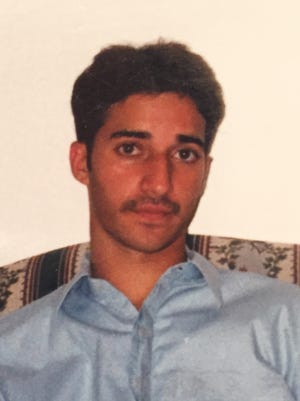The 'Serial effect' hasn't worn off

It's been more than six months since Serial made the term "podcast" the buzzword of the moment.
Now, over 80 million downloads later, podcasters are still feeling a boost from the audio show's popularity, and new podcast Undisclosed: The State v. Adnan Syed premieres today, focusing on the "minute details" of the central murder case in Serial..
Season 2 of Serial won't be available until later this year, but fans of the show have become "new podcast listeners wandering around the podcast universe," says comedian Marc Maron, who hosts popular interview podcast WTF with Marc Maron. "The residual effects of attention Serial placed on podcasting are definitely tangible."
Serial, hosted by This American Life producer Sarah Koenig, followed the 20-year-old murder case of teen Hae Min Lee and ex-boyfriend Adnan Syed, who is serving a life sentence for her death. Through interviews with lawyers, witnesses and Syed, Koenig left listeners pondering — and debating on social media — whether Syed was actually a murderer. Since the show ended, inconclusively in December, the case has stayed on fans' radar with a slow burn of news updates: A star witness in the case against Syed finally agreed to be interviewed at the end of the year, a former classmate of Syed's submitted a new affidavit that helped Syed's case in January and the Maryland Court of Special Appeals announced in February that it would hear arguments in Syed's case.
The podcast-hungry Serial faithful have also turned to other audio offerings in the show's offseason.
Maron's WTF saw a boost in downloads when the Serial finale aired in December. He also got a nice boost from being named best podcast ever by Slate. Now, WTF gets between 5 and 6 million downloads a month, says producer Brendan McDonald.
Phoebe Judge, host of Criminal podcast, has noticed an increase in listeners, too.
"Of course there's the 'Serial effect,' " says Judge, who gained listeners after appearing on several "best shows to download after Serial" lists and now sees over a million downloads per month.
Post-Serial, Judge says she found "a whole new audience coming to podcasts that appreciated Serial and the quality of that show."
Though podcasting, or on-demand audio, was popular among niche audiences — especially comedy ones — before Serial, the show has "brought some new people into the fold," says Jad Abumrad, host of one of today's most popular podcasts, Radiolab.Serial served as a way to "whisper" to new listeners and invite them into the already-thriving podcast world, Abumrad says.
But there are other factors that have brought in more listeners, too, he says: iOs updates on iPhones that automatically downloaded the podcast app, upgrades to cars that allow for easier podcast listening, a greater awareness of the medium and a societal desire to enjoy entertainment — like TV, movies and audio — when and where you want it.
National Public Radio's vice president for programming, Eric Nuzum, who manages shows such as Radiolab, says, "Serial was a great gift to us," even though it didn't air on public radio.The series aided in the success of new podcasts like Invisibilia, a show about the invisible forces that shape human behavior.
Invisibilia had the good fortune of airing right after Serial ended, and presumably filling the new void that Serial left. It was downloaded over 28 million times within two months of launching, becoming NPR's biggest overnight success to date.
On-demand audio first became available in 2005, but there wasn't that much awareness of the medium. In fact, Radiolab's Abumrad wanted to find out about six years ago if the general public had any idea his radio show was also being shared as podcasts. He had employees go to an Apple store (they figured that would house the most tech-savvy people) and ask them, "What's a podcast?"
"Only 2 out of 10 people had even heard of it," says Abumrad.
By 2009, however, the podcast form of Radiolab "became where our new stuff goes and who we are," he says. Now, in 2015, after five years of steady audience growth, "we're heading to a situation where we're going to be a podcast, period."
Though shows like Invisibilia, Radiolab and Criminal are hosted by radio-savvy journalists with decades of audio production experience, Undisclosed is narrated by three lawyers with minimal editing experience, so it "is not going to be a beautifully crafted narrative like Serial," says one of the hosts, Rabia Chaudry, in a preview of the podcast. It will, however, be a biweekly series that "will run down the many rabbit holes of the case."